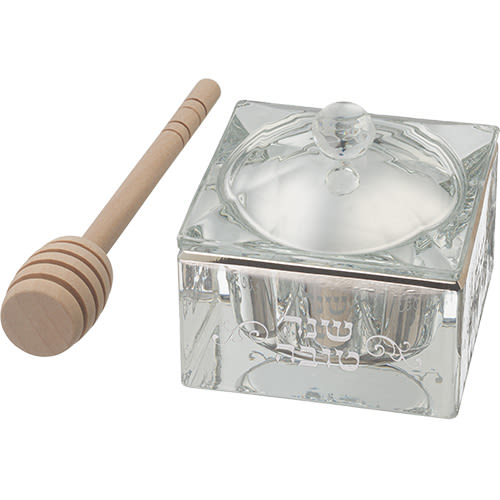
Tricks of the Evil Inclination
However, many Tzaddikim understood that Napoleon’s real goal was the annihilation of the Jewish people, and his first step was to weaken them...

Tricks of the Evil Inclination
The evil inclination has one goal: to separate us from God, who is the Source of our life and existence. It would prefer to do this by persuading us to transgress God’s commandments and having us do things that are obviously wrong. If we refuse to listen to such suggestions, however, it will take a more subtle approach – clothing itself in a garment of piety and mitzvot. “So you want to serve God?” it will ask. “Then go ahead. But now you should do it even better than before! Don’t just be an ordinary, run-of-the-mill person. You must be much stricter with yourself!”
With such arguments, the evil inclination will try to convince us to be excessively strict in matters of halacha. If we fall into the trap, we will start to make demands upon ourselves that are inappropriate to our present spiritual level and inconsistent with our real abilities and needs. We may pursue unrealistic goals which can lead us to anger and concern, since we are always afraid that we will fail to live up to the high standards we have set for ourselves. Instead of serving God with joy, our mind will be preoccupied with worries, and our heart burdened by a sense of inadequacy that leads to resentment and depression. Without even realizing what is happening, we can lose the battle against the evil inclination – since a person who is depressed cannot fight his evil inclination effectively (see Tanya, chapter 26).
This is a serious and widespread problem in our time. One reason the evil inclination often succeeds with this trick is that it offers us a handsome profit in a way that appears entirely legitimate. After all, being strict about halacha and worrying about sins are a sign of piety – and what could be wrong with an extra dose of piety? But even when the victims of this scheme find themselves doing mitzvot in a joyless manner, they fail to realize they have been swindled; worse, they fail to realize the danger of their situation. This is because they are not aware that joy is more than a “by-product” of avodat Hashem; it is the most powerful weapon we have against the evil inclination.
Napoleon’s Secret
The French general and dictator, Napoleon Bonaparte, was famous for his military successes. His troops were victorious even when they fought against armies that were larger and better equipped, and they eventually conquered most of Europe and parts of the Middle East.
At the beginning of his career, Napoleon presented himself as a friend of the Jews, promising them political rights and economic benefits. However, many Tzaddikim understood that Napoleon’s real goal was the annihilation of the Jewish people, and his first step was to weaken them spiritually. Civil rights and social integration were a way of drawing Jews away from Torah and bringing them to study the natural sciences and philosophy of the Enlightenment, studies that were permeated with rationalism, materialism, and atheism. Later, after he had undermined the spiritual basis of their existence, Napoleon intended to persecute the Jews physically.
Hence, when Napoleon invaded Russia, many great Tzaddikim, such as Rebbe Nachman and the Baal HaTanya, prayed for his defeat and actively worked against him. Although the Russian Czar Nicholas, was an antisemitic tyrant, the Tzaddikim understood that he was less of a threat to Jewish life than Napoleon. In the end, their prayers were answered: Napoleon was forced to make an ignominious retreat from Russia with the remnants of his army, and a few years later, he was deposed and imprisoned on a small island in the Mediterranean, where he died.
Before his downfall, however, Napoleon’s armies were legendary for their fighting ability. They seemed to be invincible. His soldiers were brave and disciplined. They fought like lions. Other generals tried to discover the secret of their extraordinary will to fight.
The answer was simple, and novel. Napoleon made sure that his soldiers were happy. Just as every army camp had special officers who distributed food, uniforms, and ammunition, so too every camp had professional musicians, comedians, and entertainers whose only job was to keep the soldiers cheerful, and to fill their hearts with a sense of confidence and superiority. These entertainers were regarded as no less important than the officer who led the fighting. On the night before battle, when the enemy soldiers would be tense with fear and apprehension, Napoleon’s men would be in a mood of cheerful celebration. Then, when it came to the actual fighting, they were fierce as lions, because their hearts were full of confidence and joy.
The Tzaddikim of the generation were amazed. How did such a wicked man acquire this heavenly secret? For the fact is that through joy, one can win all battles.
The Trick: Just Avoid Sadness
Joy is our greatest weapon in the war against the evil inclination, and hence it is a characteristic that everyone should try to attain. The problem is that if a person works directly to acquire the characteristic of joy, he runs a risk of ending up with the very opposite – depression. Strange as it may seem, that is the way the mind works. One of the laws of “spiritual physics” is that whenever we try to push in a particular direction, an opposing force is automatically aroused. (Ta’anit 30b)
The best advice, therefore, is not to push ourselves to be joyful, but just to keep depressing thoughts out of our minds. We should make a firm decision that just as it is forbidden to dwell on thoughts of lust or heresy, so too it is forbidden to entertain thoughts that are depressing, as the Talmud says, “Do not bring worry into you heart” (Sanhedrin 100b). And once our minds are free from sadness, joy will come automatically – as a natural consequence of the mitzvot we do.
Medicines You Can Do Without
Sometimes, we come across a new approach or technique for serving God that promises to be useful. It might even be a remedy for a serious spiritual illness. But if we find that it is making us depressed, we should reject it completely. Our attitude should be that of the popular saying: “Don’t give me your honey, and don’t give me your sting!” We must announce: “If it comes without depression, I will accept the suggestion. But if not, I don’t need such help.” If a thirsty person was given a bottle of poisoned water, would he drink it? Obviously, the correct response would be: “Give me something without poison, and then I’ll drink it.”
I heard an appropriate parable: Once upon a time, the lion, the king of the animals, became ill and all the animals in his kingdom tried to find a medicine for him. They heard about a plant that would cure him, but it grew only in a deep crevice between the rocks, making it almost unreachable. Finally, the snake offered to creep in and pull it out with his fangs. The lion’s answer was: “From anyone else, I would gladly accept it, but not from the snake – because whatever he brings me will be tainted with his poison.” In other words: the medicine might be a good one, but if it comes together with sadness and depression, it will ultimately do more harm than good.
To be continued…
(Excerpt from The Scent of Gan Eden, by Rabbi Yaakov Meir Shechter, Keren Ohr Publications. Used with author’s permission.)












Tell us what you think!
Thank you for your comment!
It will be published after approval by the Editor.